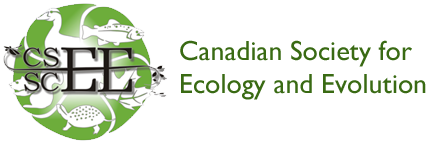M.Sc. and Ph.D. positions in Arctic Terrestrial Ecosystem Ecology – Queen’s University, Ontario, Canada
M.Sc. and Ph.D. positions: Capitalizing on long-term experimental manipulations to understand and predict arctic terrestrial ecosystem responses to climate warming
The Arctic is undoubtedly experiencing rapid recent warming that is already substantially affecting the structure and functioning of its ecosystems, including Northern peoples. I am seeking motivated graduate students with an undergraduate background in plant ecology, environmental science, biogeography, and/or soil science who are interested in developing a project in one of the lab’s current research themes:
1. Tundra plant community responses to summer warming
2. Role of phosphorus as well as nitrogen in determining tundra plant community structure and responses to climate change
3. The potential for transition from low to medium stature (~ 1m tall) shrub tundra vegetation across the Low Arctic: When, Where, Which?
4. The impacts of deepened snow on soil carbon and microbial nutrient dynamics in low arctic tundra
5. The biogeochemical significance of the stoichiometric differences among plant species, soils, and soil microbes in understanding tundra ecosystem responses to climate change.
The proposed graduate student projects will develop and test their own innovative research hypotheses using the experimental infrastructure that has been maintained at our Northwest Territories’s Daring Lake research site in central low arctic Canada since 2004. These fully replicated (n = 5-10) experimental manipulations include both high and low-level factorial NxP annual additions, summer plastic greenhouses, snowfences, and caribou exclosures. In addition, we have an ongoing long-term observational study of shrub vegetation change across the full range of habitat-types in the Daring Lake landscape, and significant research collaborations with colleagues across Canada, the U.S. and Europe. Visit the lab website for lots more information: https://www.queensu.ca/terrestrial-ecosystem-ecology/. For more general information about graduate life and learning potential in the Department of Biology, see the following video.
Ideal start date: Summer 2024 to January 2025
Minimum current (2023-24) annual stipend support is $25,750 (M.Sc.) and $27,750 (Ph.D.) for two and four years respectively, while the costs of Queen’s graduate tuition and fees for domestic students currently total $7250. Note this minimum stipend is a starting point: additional top-up is possible contingent on scholarships and additional funds in the lab. Unfortunately, Queen’s graduate tuition and fees for international M.Sc. students currently total $15200, and so the positions advertised here are not available to persons who are not Canadian citizens or permanent residents of Canada unless they have potential access to supplementary funding sources.
Review of applications will begin on March 8th, 2024 and continue thereafter until the positions are filled. To apply, please send an email to groganp@queensu.ca that includes:
1. A one-page cover letter clearly outlining your research interests and how they relate to the themes above, and how your previous experiences and training have prepared you for an M.Sc. or Ph.D.
2. Your CV
3. Unofficial copies of your undergraduate and M.Sc. (if applicable) transcripts
4. Contact details for three references
The successful applicant will join a dynamic group of faculty and students in the Department of Biology (https://biology.queensu.ca/ ) at Queen’s University, which is located in the particularly attractive, historical, and small but diverse and progressive city of Kingston, with many local outdoor recreational opportunities in surrounding Eastern Ontario, and close proximity to Toronto, Ottawa, and Montreal. Our Department of Biology is distinctive by continuing to deliberately integrate across all major biological disciplines rather than splitting into separate organismal and molecular-focussed departments. In accordance with our university-wide commitment to equity and diversity, applications from women, visible minorities, Black and Indigenous peoples, People of Colour, persons with disabilities, and 2SLGBTQ+ persons, as well as mature (i.e. older) students, are especially encouraged and will likely be eligible for extra support.
